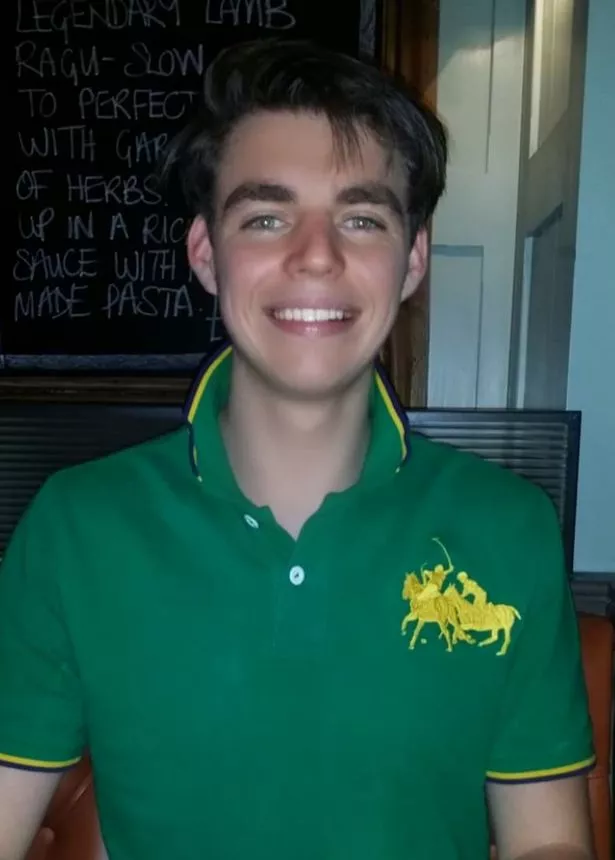Adrian Poulton died just two weeks after being admitted to hospital – but his family believed he was being fed. Adrian told his sister that he “didn’t want to die” while he was very unwell.(Image: Family Handout/ITV)
Adrian told his sister that he “didn’t want to die” while he was very unwell.(Image: Family Handout/ITV)
The family of a man with Down’s Syndrome, who tragically died after he was reportedly left starving for over a week in an NHS hospital, have spoken out about their ordeal.
Adrian Poulton, 56, was a patient at Poole Hospital in Dorset in September 2021, recovering from a fall at his care home which caused a broken hip.
During his stay, staff are said to have marked him as “nil by mouth” by mistake, meaning he was given no food for nine days. He died on September 28, just two weeks after being admitted.
His father Derek Poulton told ITV News: “Not being medical, we just naturally thought he was having nutrition, a feed. But as it turns out, they were starving him.”
By the time the family realised what had happened, he was already too unwell to get better. His sister Lesley Bungay said: “We were just so worried. He was really poorly. He did look at me and dad… he said to me, ‘Lesley, I don’t want to die’. He knew he was going to die. It was just awful.”
An internal investigation carried out by the hospital that a lack of nutrition contributed to Adrian’s death, the Mirror reports.
The report recommended improvements in training across the NHS trust regarding specialist care for patients with learning disabilities.
Dr Peter Wilson, Chief Medical Officer at University Hospitals Dorset, said: “We offer our sincere condolences once again to [Mr Poulton’s] family and have apologised for the failings that resulted in his death.
“At the time, we undertook a serious incident investigation to identify any learning points. We have implemented a number of changes following this and have shared these with the family.”
 Join the Daily Record WhatsApp community!
Join the Daily Record WhatsApp community!
Get the latest news sent straight to your messages by joining our WhatsApp community today.
You’ll receive daily updates on breaking news as well as the top headlines across Scotland.
No one will be able to see who is signed up and no one can send messages except the Daily Record team.
All you have to do is click here if you’re on mobile, select ‘Join Community’ and you’re in!
If you’re on a desktop, simply scan the QR code above with your phone and click ‘Join Community’.
We also treat our community members to special offers, promotions, and adverts from us and our partners. If you don’t like our community, you can check out any time you like.
To leave our community click on the name at the top of your screen and choose ‘exit group’.
If you’re curious, you can read our Privacy Notice.
The NHS-funded Learning from Lives and Deaths review, published last month, stated that adults with learning disabilities die on average nearly 20 years younger than the general population – with nearly 40 per cent of those deaths regarded as “avoidable”.
In 2023, common causes of these avoidable deaths included the flu, pneumonia, cancers of the digestive tract and heart disease.
Jon Sparkes, chief executive of the learning disability charity Mencap, told the BBC at the time: “These stark new figures show people with a learning disability are dying a shocking 19.5 years younger than the general population.
“People with a learning disability and their families deserve better. In this day and age, no one should die early because they don’t get the right treatment.”
The charity is now part of a coalition of 16 organisations and campaigners writing urgently to Health Secretary Wes Streeting, calling for immediate action to prevent the collapse of the Learning Disability Nursing workforce.
The letter, which has been seen by ITV News, warned: “The profession is in crisis, and urgent intervention is needed to avoid imminent collapse.”
“The Learning Disability nursing workforce has declined by 43% since records began in 2009,” the letter reads. “If nothing changes, it is predicted by 2028 there will only be a tiny number of Learning Disability Nurses qualifying in England, with a pattern of reducing numbers in the other UK countries too.”
Adrian is not the only person whose death in hospital has prompted an outcry. 18-year-old Oliver McGowan, who had autism and epilepsy, died in an NHS hospital in 2016 after he was given an anti-psychotic drug – despite his medical notes stating he had a known intolerance to it.
A review found a “general lack of understanding and acknowledgement of Oliver’s autism” among the staff, and concluded his death could have been avoided.
 Oliver McGowan(Image: PA)
Oliver McGowan(Image: PA)
His death prompted the creation of the Oliver McGowan Mandatory Training programme – the government’s gold standard in training for health and social care staff in England – in 2022. However, NHS England has failed to achieve its own targets so far, with all but one region falling short of the goal to train 30 per cent of staff by this year.
Wes Streeting told ITV News: “It really is shocking the unequal outcomes that we see for learning disabled people in the country. Not just unequal access to care but shockingly lower life expectancy.
“That’s why we have committed to publish every single year the data about those patients and their care, so that we can hold ourselves to account and the public can hold us to account to improve their care.”
A spokesperson for NHS England said: “The rollout of Oliver McGowan Mandatory Training on Learning Disability and Autism is one of the largest health and social care training programmes in history with more than three million staff starting the course.
“We’ve been working with local health systems across the NHS to develop a sustainable model so that more staff have this essential training including investing in better data collection so we can identify areas that haven’t met this target and to provide more support.”
